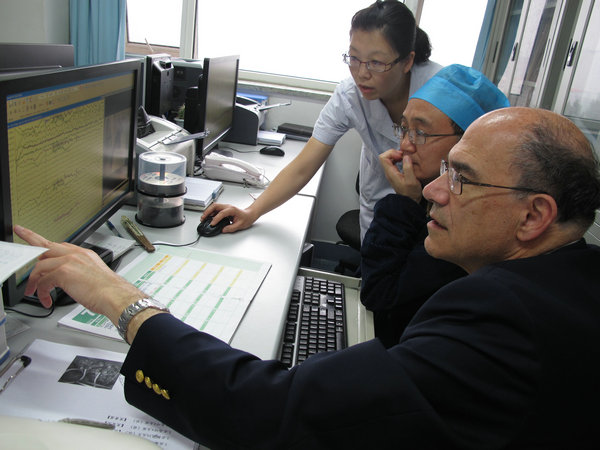 |
|
Mark Hallett and his Chinese colleagues check a patient's medical records in Xuanwu Hospital of the Capital Medical University in Beijing.[Photo provided to China Daily] |
However, it's a huge advantage for research, he adds.
"The volume of cases and quality of data here makes it possible to get unusual types of patients," he explains.
Hallett has worked with doctors in the hospital to collect data on Parkinson's disease based on surgeries. The data can help doctors understand why the operation worked and how to improve it, Hallett explains.
Hallett's worked has been an important support for popularization of the deep-brain stimulation treatment for Parkinson's disease in China in the past decade. Studies have shown DBS can help the brain maintain connections so it can retrieve memories.
Hallett says DBS can help maintain the benefit of medicine for a longer time and reduce patients' involuntary movements caused by the disease.
Previously, DBS was mainly carried out in a few Western countries because the management required after surgery is difficult. Now China has the largest number of cases of DBS treatment in the world.
According to Hallett, a higher percentage of China's big population is likely to have Parkinson's disease since the average age of Chinese people is increasing rapidly and risks for the disease increase with age.
"It's hard to find an ultimate solution for all the types of Parkinson's disease. But it is very urgent to find better ways of treatment," says Hallett.
In addition to his long-term partnership with Xuanwu, Hallett collaborates with more than 10 other Chinese hospitals, pursuing the use of new therapies, new technologies and the study of different kinds of movement disorders.
He has also helped the Chinese hospitals organize international academic meetings, which bring famous international scientists to China to share the latest research, advances and treatments of Parkinson's disease.